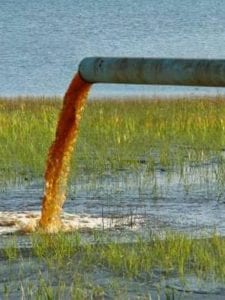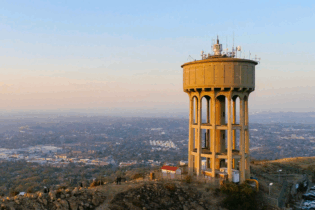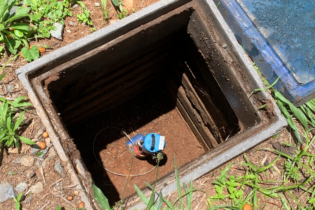
Acid mine drainage, as experienced in Mpumalanga, causes serious environmental and health implications
When Mail & Guardian visited Carolina in March the only stable source of water for people in the neighbouring township of Silobela was a water tank at the local mosque. Queues of people with wheelbarrows plied back and forth. Residents said the odd tanker might turn up, but this was not a reliable source of water. These tankers were the first emergency measure, which the department of water affairs and municipality then supplemented with water tanks. Many people who could afford to drill their own boreholes – mainly those in Carolina itself – have turned to this source for their water. Sputnik Ratau, the department’s spokesperson, said it had sent a rapid response unit to help the municipality with technical expertise. The unit was trying to work on the plant in the short term so people could get water, as well giving immediate solutions. Looking further ahead, “we also have a task team that is monitoring the long-term problems so this does not happen again,” he said. In a parliamentary reply this month, Water Affairs Minister Edna Molewa said the department was considering criminal charges against four mines that it said were responsible for polluting Carolina’s water. But this is not helping residents now, who say that every month they hear promises that the water will be turned on, and every month it remains off. Human rights issue
This has led them to join Lawyers for Human Rights and the Legal Resources Centre in launching an urgent application to “compel the responsible authorities to provide reliable potable [drinking] water to the residents of Carolina”.
The Water Services Act sets a minimum quantity of potable water of 25 litres of water per person per day, or 6 000 litres per household per month. The Act also says a household’s nearest water supply should be no further than 200m away. People must also not go more than seven consecutive days in a month without access to water.
Emma Algotsson, of Lawyers for Human Rights, said the municipality had not met its obligations. “Clearly this community has gone without water for more than the maximum seven days,” she said.They could not open an urgent case in the past because the municipality kept vaguely promising to provide water, but a case like that would take months to be heard. It was only when an explicit promise was made that water would be flowing by June 15 that more could be done. “When that date passed, we knew we had an urgent case,” she said. The founding documents charge that “the delivery of water in Silobela has been almost nonexistent, leaving thousands of residents without access”. In its part of the application, the Silobela Concerned Community claimed that although there were 12 water tanks in the township, only two were accessible and available to the public at any given time. The rest were either located in schools or available for households that were having a funeral. Ratau said that he had checked with the director-general of his department this morning, and “we haven’t got sight of the documents”. When they do have the papers, they will give their response “in front of the judge”, he said. He did say that the department hoped to have clean water flowing in Carolina by the end of this month. “We are hoping the refurbishment and upgrading of the water works will be finished by the end of the month, and we are working day and night to achieve that,” he said. One of the final hurdles is to scour the water pipes to get rid of any residue that might pollute any water that is pumped through, he said. Algotsson said the department had until Wednesday to respond. “Hopefully the judge can then hear the case by next Tuesday, because it’s urgent.” Source: Mail & Guardian







